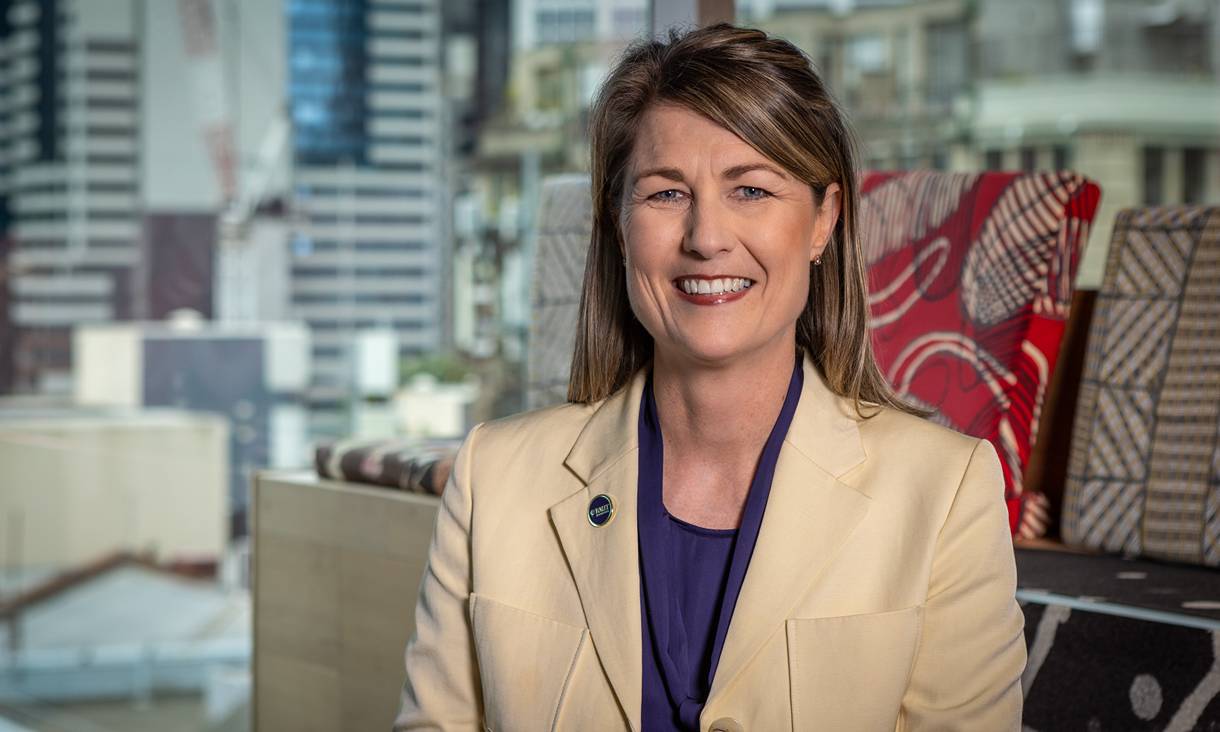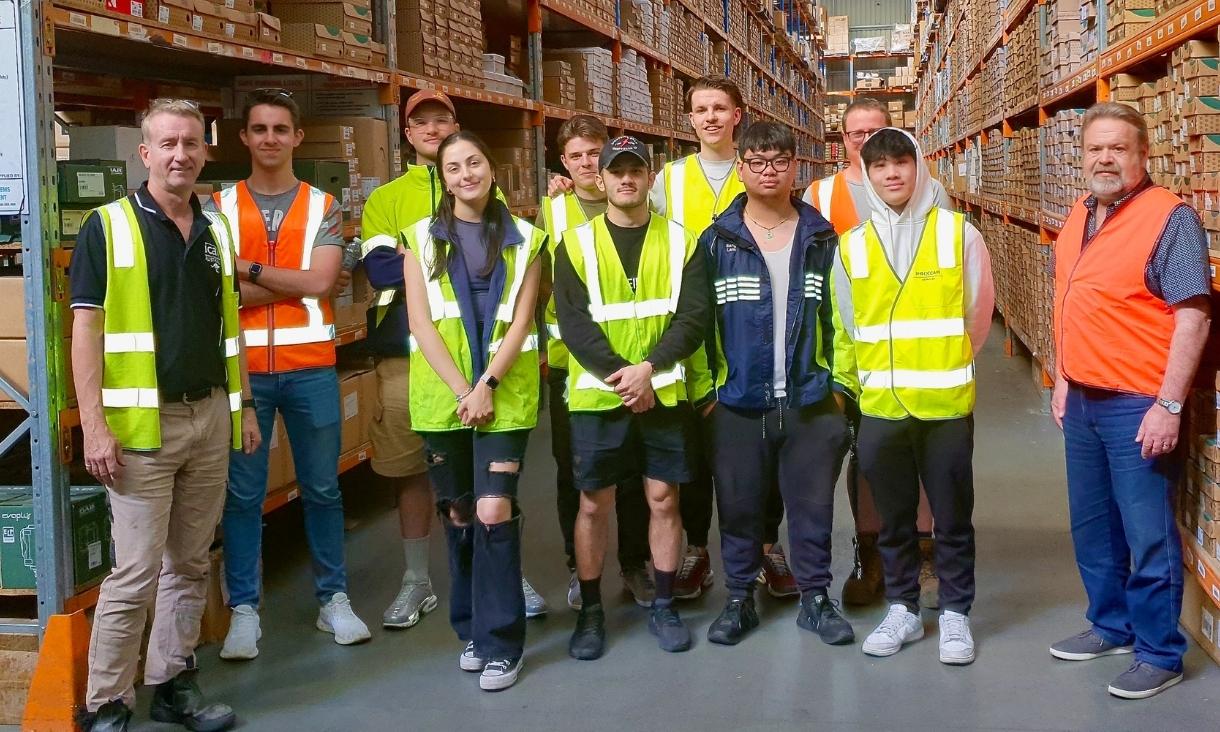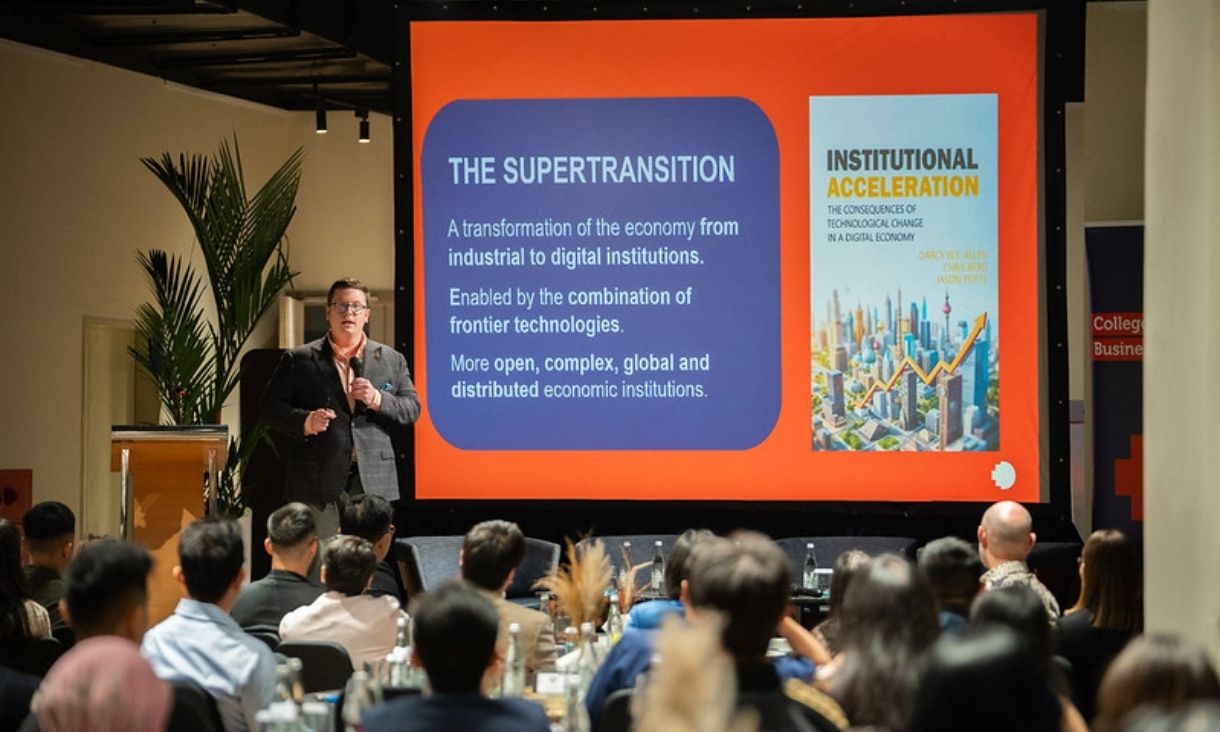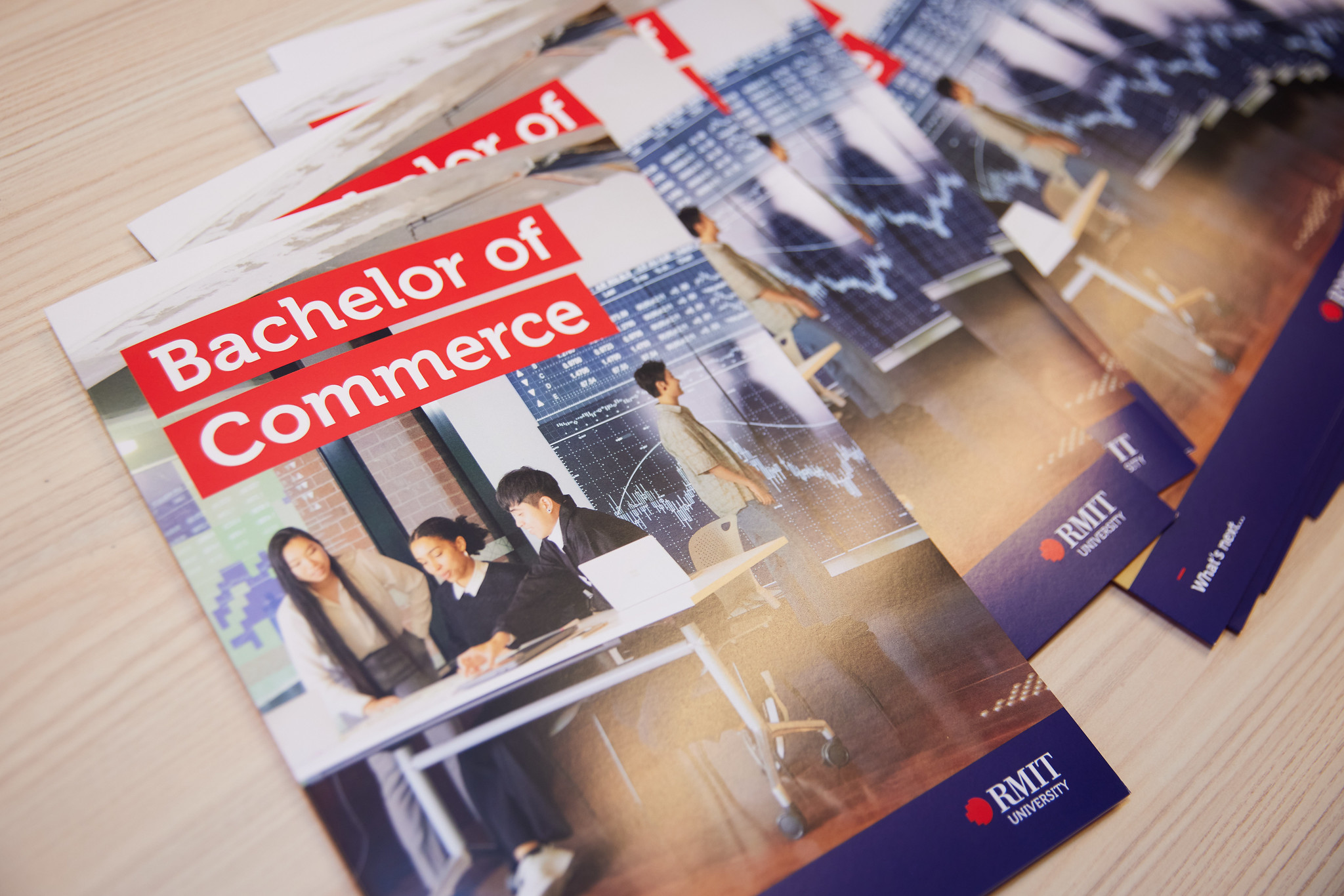Fiona Notley joins RMIT
RMIT welcomes new Chief Operating Officer and Vice-President Fiona Notley, who brings to the role more than 20 years' experience in senior executive positions across education, sport, and health.
Revamped diploma updates logistics for a new generation
A refreshed version of RMIT’s Diploma of Logistics is focusing on the technology and organisational skills needed to make an impact in the fast-changing field of logistics.
“We are on the cusp of a technology-driven ‘supertransition’” - RMIT expert says deep economic change is occurring with profound consequences for business
RMIT economist Dr. Darcy Allen says the world is in an economic ‘supertransition’: profound economic change driven by the simultaneous combination of technologies.
Brand-new BCom launches for tech-minded business leaders of the future
RMIT is partnering with Accenture, ANZ, L’Oréal and Salesforce to deliver a new undergraduate degree designed for students with a keen eye on leadership.





